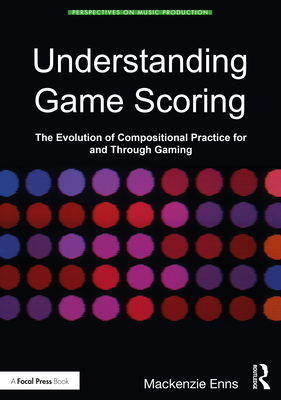I Am Error: The Nintendo Family Computer / Entertainment System Platform (Platform Studies)
暫譯: 我是錯誤:任天堂家庭電腦/娛樂系統平台(平台研究)
Nathan Altice
- 出版商: MIT
- 出版日期: 2017-09-08
- 售價: $1,930
- 貴賓價: 9.5 折 $1,834
- 語言: 英文
- 頁數: 440
- 裝訂: Paperback
- ISBN: 0262534541
- ISBN-13: 9780262534543
海外代購書籍(需單獨結帳)
買這商品的人也買了...
商品描述
In the 1987 Nintendo Entertainment System videogame Zelda II: The Adventure of Link, a character famously declared: I AM ERROR. Puzzled players assumed that this cryptic mesage was a programming flaw, but it was actually a clumsy Japanese-English translation of "My Name is Error," a benign programmer's joke. In I AM ERROR Nathan Altice explores the complex material histories of the Nintendo Entertainment System (and its Japanese predecessor, the Family Computer), offering a detailed analysis of its programming and engineering, its expressive affordances, and its cultural significance.
Nintendo games were rife with mistranslated texts, but, as Altice explains, Nintendo's translation challenges were not just linguistic but also material, with consequences beyond simple misinterpretation. Emphasizing the technical and material evolution of Nintendo's first cartridge-based platform, Altice describes the development of the Family Computer (or Famicom) and its computational architecture; the "translation" problems faced while adapting the Famicom for the U.S. videogame market as the redesigned Entertainment System; Nintendo's breakthrough console title Super Mario Bros. and its remarkable software innovations; the introduction of Nintendo's short-lived proprietary disk format and the design repercussions on The Legend of Zelda; Nintendo's efforts to extend their console's lifespan through cartridge augmentations; the Famicom's Audio Processing Unit (APU) and its importance for the chiptunes genre; and the emergence of software emulators and the new kinds of play they enabled.
商品描述(中文翻譯)
在1987年任天堂娛樂系統的電子遊戲《塞爾達傳說 II:林克的冒險》中,一個角色著名地宣稱:我就是錯誤(I AM ERROR)。困惑的玩家以為這個神秘的訊息是程式錯誤,但實際上這是「我的名字是錯誤(My Name is Error)」的笨拙日英翻譯,這是一個無害的程式設計師笑話。在《我就是錯誤(I AM ERROR)》中,內森·阿爾蒂斯(Nathan Altice)探討了任天堂娛樂系統(及其日本前身家庭電腦)的複雜物質歷史,提供了對其程式設計和工程的詳細分析、其表達能力以及其文化意義。
任天堂的遊戲充斥著翻譯錯誤的文本,但正如阿爾蒂斯所解釋的,任天堂的翻譯挑戰不僅是語言上的,還涉及物質層面,並且其後果超出了簡單的誤解。阿爾蒂斯強調了任天堂第一款基於卡帶的平台的技術和物質演變,描述了家庭電腦(或稱Famicom)及其計算架構的發展;在將Famicom改編為美國電子遊戲市場的重新設計娛樂系統時所面臨的「翻譯」問題;任天堂的突破性主機遊戲《超級瑪利歐兄弟(Super Mario Bros.)》及其卓越的軟體創新;任天堂短暫專有磁碟格式的引入及其對《塞爾達傳說(The Legend of Zelda)》設計的影響;任天堂為延長其主機壽命而進行的卡帶增強努力;Famicom的音頻處理單元(APU)及其對音效音樂(chiptunes)類型的重要性;以及軟體模擬器的出現及其所啟用的新型遊玩方式。












